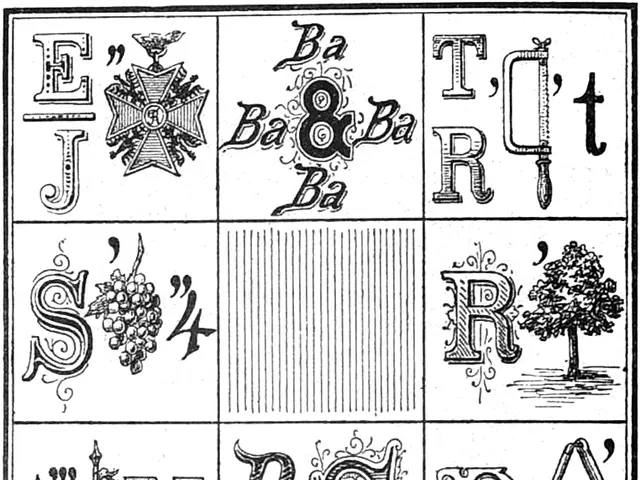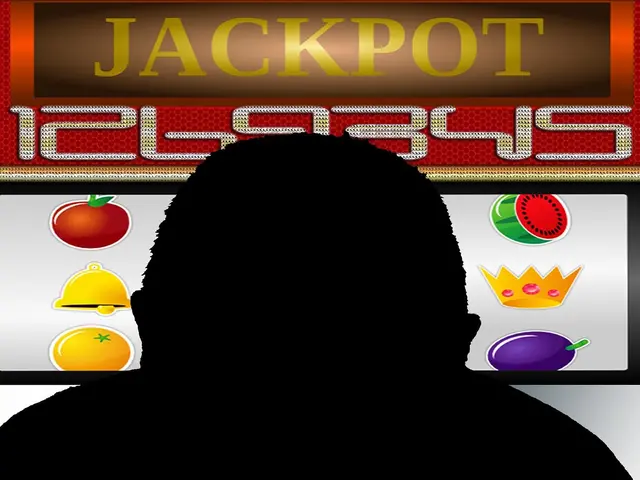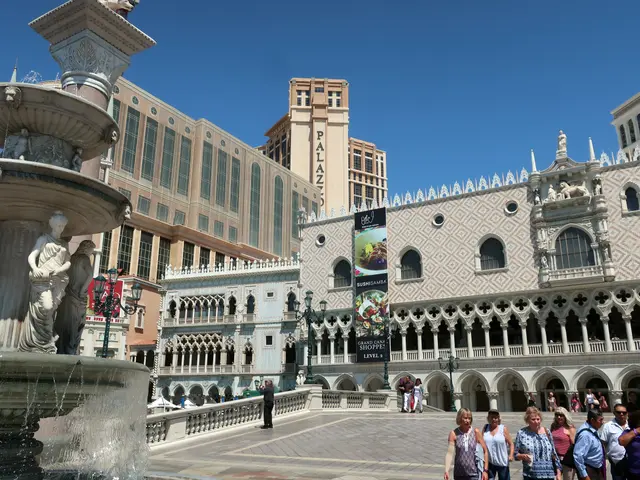Trump imposes 50% tariffs on Brazilian goods in response to Bolsonaro's actions
In a series of recent developments, the relationship between the United States and Brazil has become strained, with tariffs, sanctions, and Supreme Court controversies at the forefront.
A delegation from Brazil, including supporters of President Jair Bolsonaro and a former opposition Cabinet member, recently met with Democratic members of the Senate Foreign Relations Committee and Republican Sen. Thom Tillis in Washington to discuss the escalating dispute. The discussions come as the U.S. imposes a 50% tariff on certain products imported from Brazil, effective Friday.
However, it's important to note that the tariff is not due to Brazil's trade policies, but because of President Donald Trump's relationship with Bolsonaro and actions of a supreme court justice. The U.S. has a trade surplus with Brazil of hundreds of billions of dollars over more than a decade.
The tariff, which excludes some products like oranges, oil, and fertilizers, is in response to the Trump administration's executive order, which imposes a 50% tariff on certain products imported from Brazil, effective August 1, 2023. The order also targets Brazilian supreme court justice Alexandre de Moraes, who has been accused of serious human rights abuses.
The allegations against de Moraes include his abusive judicial overreach, prosecuting and detaining individuals without bringing formal charges, violating freedom of expression, and engaging in politically motivated prosecutions. He has arbitrarily detained critics, including a journalist held for over a year, blocked social media accounts, ordered raids on critics’ homes, frozen assets, and revoked passports, actions viewed as violations of basic human rights protections around free speech and due process.
The U.S. Treasury Department cited de Moraes for running an oppressive campaign of censorship, arbitrary detentions that violate human rights, and politicized prosecutions, particularly against Bolsonaro and his supporters. These actions were described as undermining both Brazilians’ and Americans’ rights to freedom of expression. The sanctions prohibit him from holding property in the U.S. or doing business with Americans, under the authority of the 2012 Magnitsky Act.
Meanwhile, Trump's social media company, Trump Media, has sued de Moraes over a suspension order he issued to the video hosting company Rumble, used by Trump Media for Truth Social. The case is expected to eventually end up at the Supreme Court.
In addition, a U.S. appeals court panel heard arguments on a challenge to Trump's authority to impose tariffs by executive order brought by businesses and a coalition of state attorneys general. The Trump administration's Office of Special Counsel has also launched an investigation into ex-Trump prosecutor Jack Smith.
Brazil exports popular commodities like coffee, beef, aircraft, and iron and steel to the U.S., and the tariffs could impact these exports. Brazil's foreign minister also flew to Washington to meet with Sen. Marco Rubio. However, a phone call between U.S. Commerce Secretary Howard Lutnick and his Brazilian counterpart reportedly did not go well.
President Lula has not yet announced how Brazil will retaliate against the U.S. tariffs. One of Bolsonaro's sons, Eduardo Bolsonaro, a Brazilian congressman, reportedly worked to enlist Steve Bannon and other MAGA allies to put pressure on Brazil over his father's case.
In a letter to Lula, Trump criticized Brazil's treatment of Bolsonaro and threatened tariffs on Brazilian products if the country continues to issue secret and unlawful censorship orders to U.S. social media platforms. The Smithsonian will again include Donald Trump in an impeachment exhibit in the coming weeks.
[1] https://www.nytimes.com/2023/02/10/world/americas/brazil-us-tensions-tariffs.html [2] https://www.reuters.com/world/us/us-imposes-tariffs-brazilian-products-over-human-rights-abuses-2023-02-08/ [3] https://www.bbc.com/news/world-latin-america-63894136 [4] https://www.nytimes.com/2023/02/07/world/americas/brazil-us-tariffs-trump.html
- Despite the escalating dispute between the United States and Brazil, discussions about the tariffs and Supreme Court controversies have been held by political figures, with a delegation from Brazil meeting with members of the Senate Foreign Relations Committee to address the issues.
- Interestingly, the U.S. tariffs on certain products imported from Brazil are not influenced by trade policies, but by the relationship between President Donald Trump and Brazil's President Jair Bolsonaro, as well as the actions of a supreme court justice.
- In the midst of these strained relations, allegations have been made against supreme court justice Alexandre de Moraes, accusing him of human rights abuses, such as abusive judicial overreach, violations of freedom of expression, and politically motivated prosecutions.
- Moreover, the U.S. Treasury Department has imposed sanctions on de Moraes under the 2012 Magnitsky Act, citing his campaign of censorship, arbitrary detentions, and politicized prosecutions as violations of human rights and freedom of expression.






